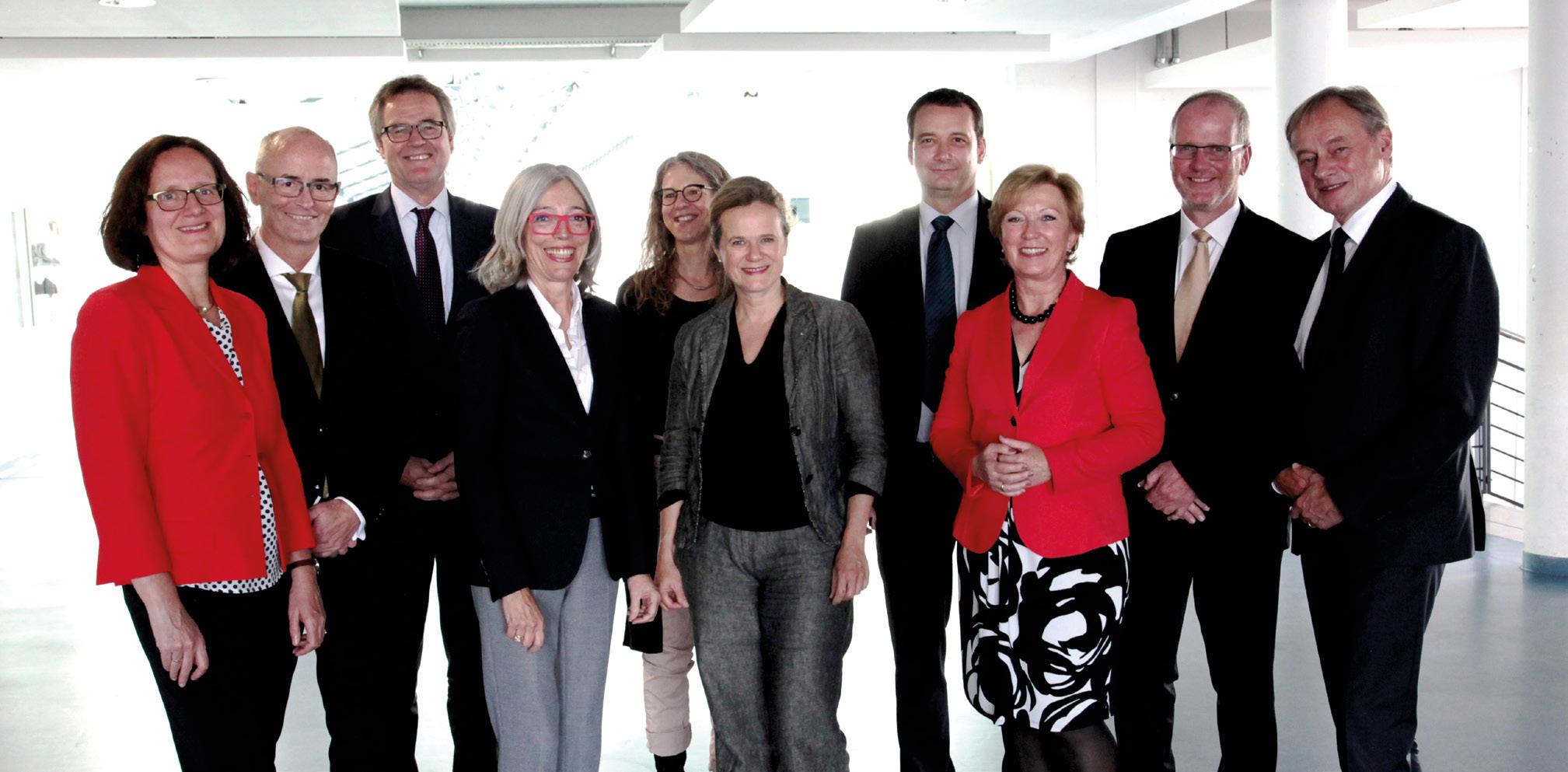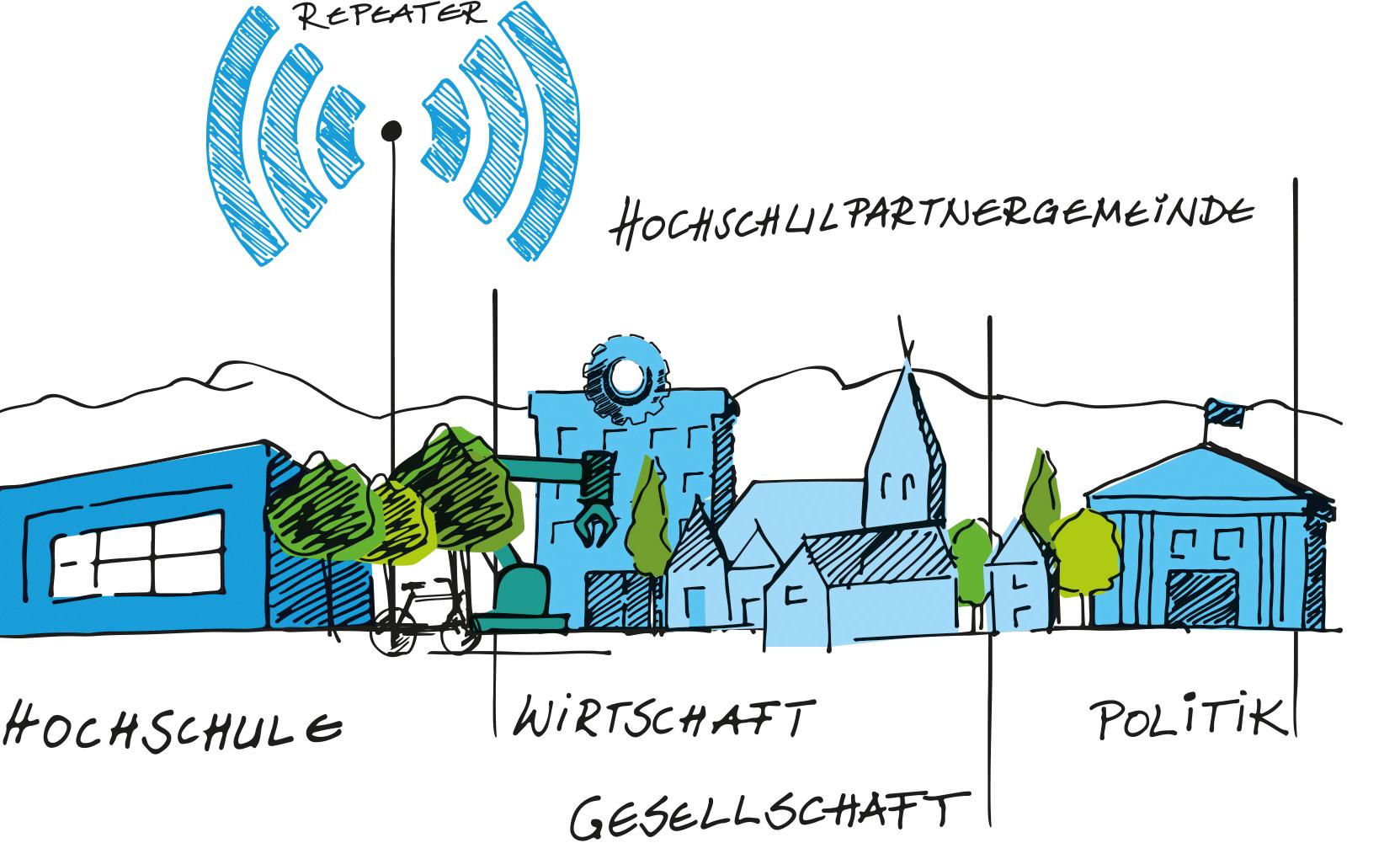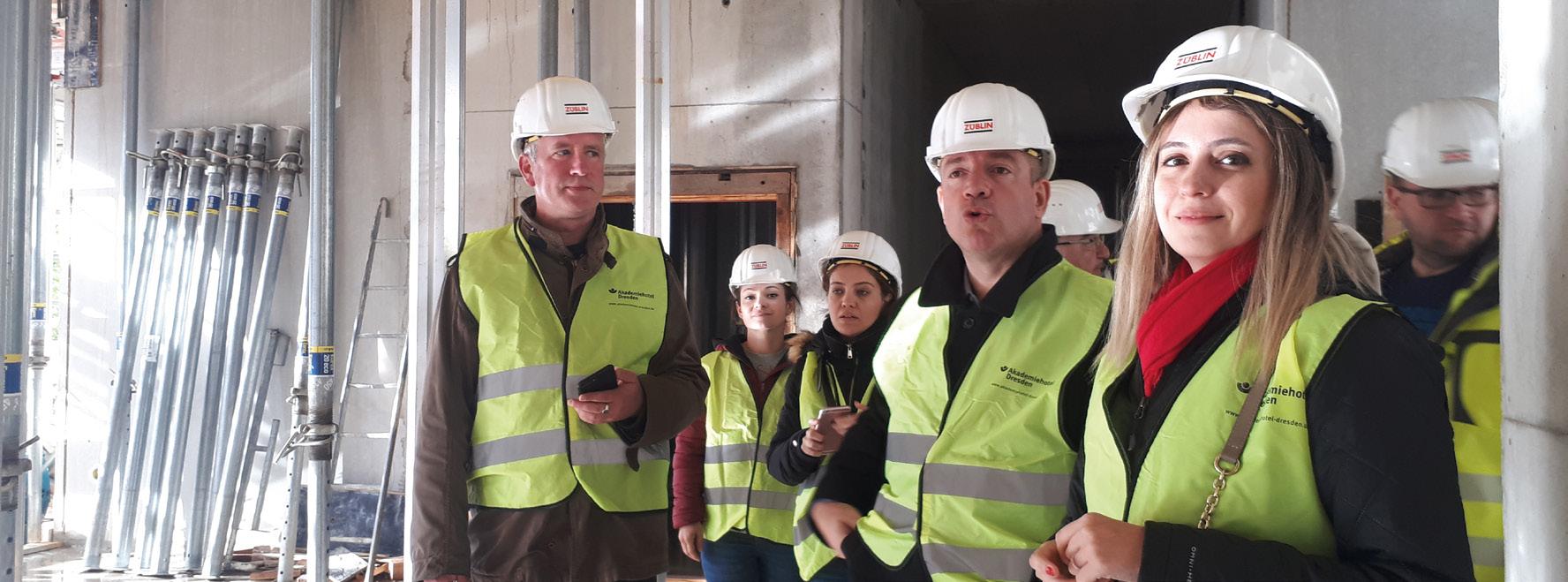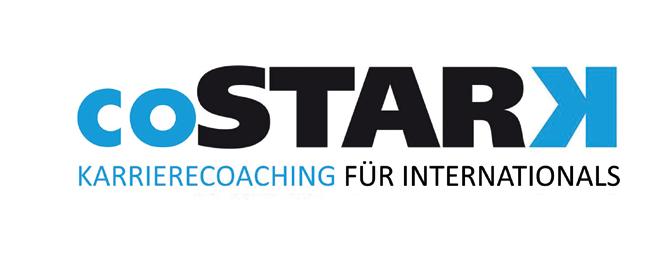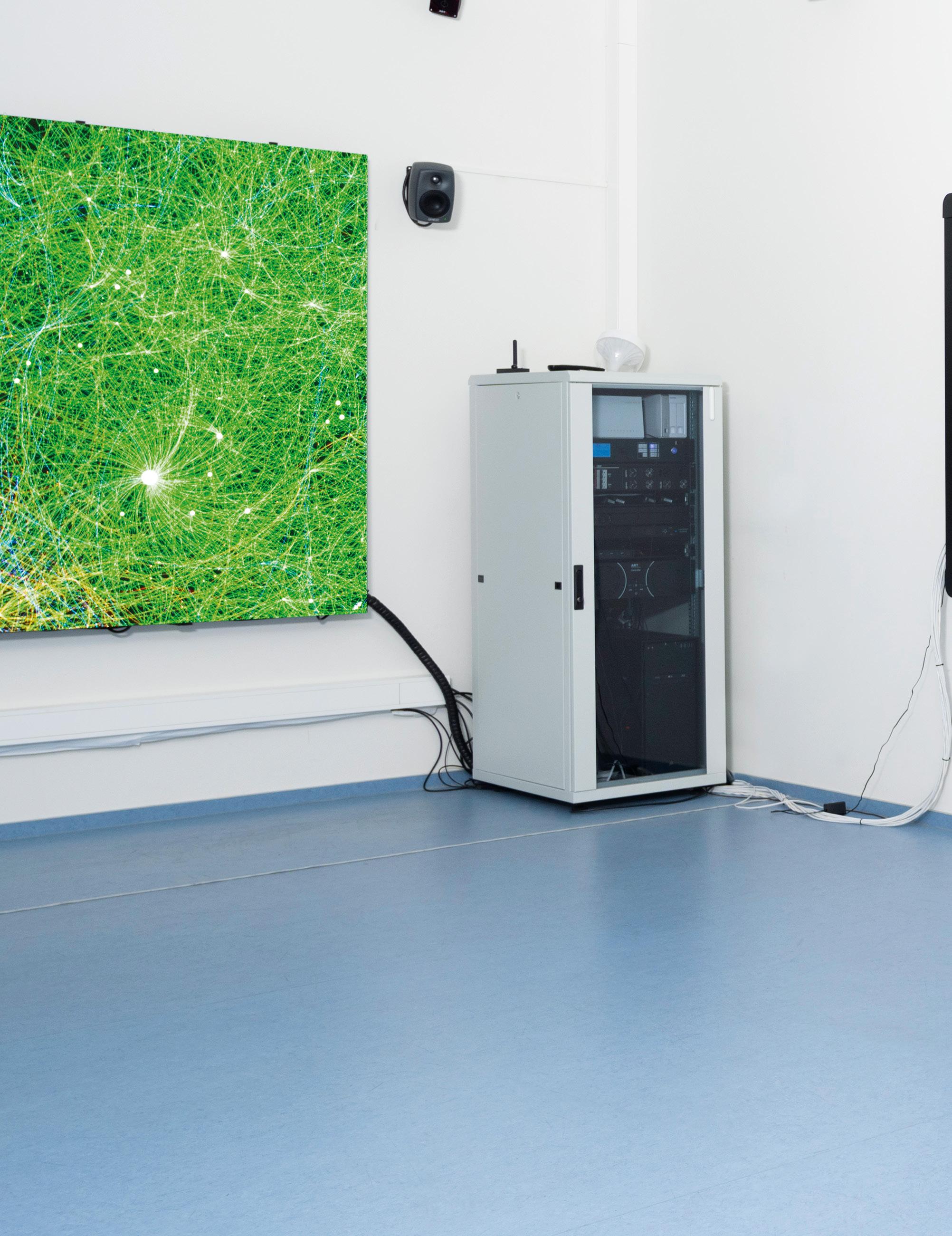
3 minute read
Internationalisation at home

H-BRS has a broad international base – benefiting both students and lecturers
The university‘s credo “shaping and living internationality” is reflected in many places. Since 2017, for instance, there has been an “H-BRS International Chair”, which is usually filled by a foreign professor for one year. The lecturers, who are always English-speaking, enrich the university‘s everyday life with an international perspective, which benefits both students and lecturers. “We’re proud of the fact that the International Chair has an impact in many respects both inside and outside the university”, says Professor Jürgen Bode, Vice President for International Affairs and Diversity. The chair is currently held by Professor Rosemund Boohene (Management Sciences) from the University of Cape Coast in Ghana and Arthur Ngasani from Tanzania (Social Policy and Social Security Studies). The chair was designed so that the holders teach at least ten hours per week. “This allows the students to deal intensively with internationally influenced content and with English technical language”, explains Bode. In addition, the International Chair is intended to help increase the number of foreign students and link the university with institutions from abroad.
Eight international degree programmes
Internationalisation is also a major focus of the study programme. The university now offers eight international degree programmes, two Bachelor‘s and six Master‘s degree programmes. All eight are held completely in English. “This makes us stand out. There are not likely many universities of applied sciences of our size that have so many international degree courses. This makes us attractive for students from abroad who can’t speak German”, says Bode. He also sees a benefit for German students. “They learn to work together in international teams, as many of them will experience later in their careers”, he explains.
Guest lectures on a variety of topics round out the H-BRS internationalisation@home. In 2019, 14 lectures by foreign guest scientists were held at the university.
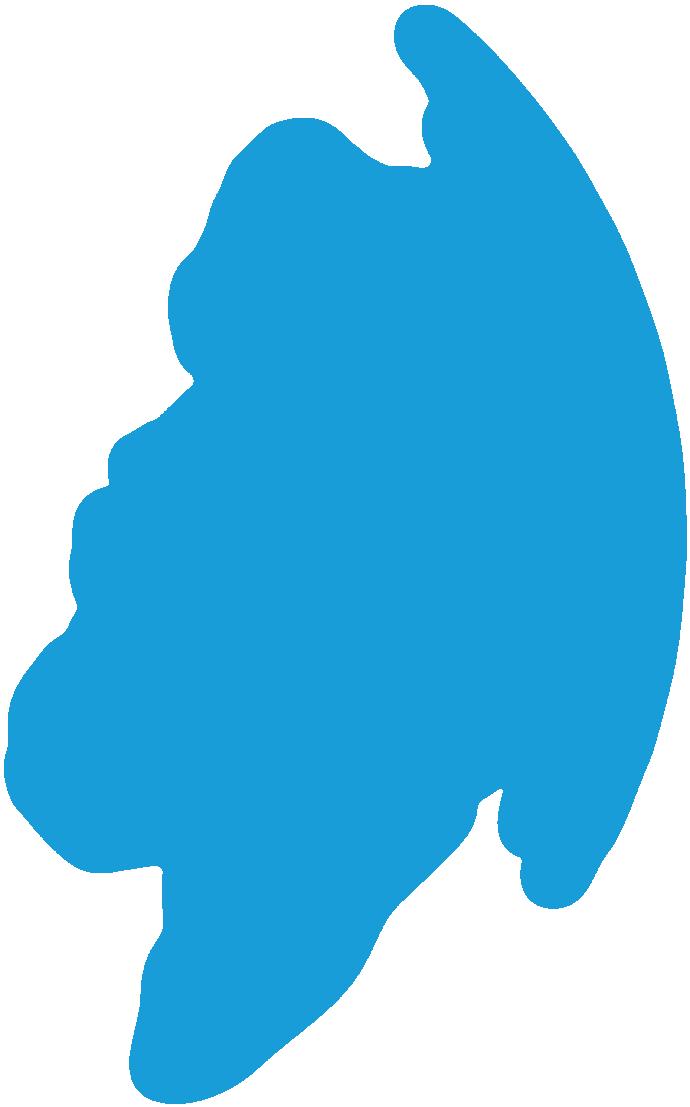

More information: www.h-brs.de/en/international
23
Comprehend – we have heard this word more often recently, namely in relation to the corona crisis. In science, curiosity drives us to acquire knowledge about the world, not superficially, but by trying to cast light on everything from every angle. We want to permeate the world around us, and in doing so we come to know about the world. In times of crisis, it becomes clear how essential it is to comprehend things and what significance research has for our society. It ensures our survival. The study of animal DNA and RNA and their viral infection is not just an academic dexterity exercise. Instead it makes it possible to develop completely new types of vaccines for humans. Research is not a mere playground for bored academics but systemically relevant to the whole of civilisation.
Research can still be fun because without fun there can be no creativity. We see this in the diverse research projects at Hochschule Bonn-Rhein-Sieg. New topics of research are developed and research projects are carried out here with great commitment. Society is always the source of topics in this process. Research requires networking with society outside higher education institutes and universities. This idea is implemented in our Centre of Applied Research where strategic partnerships with industry and nonuniversity research institutes are actively set into practice. To ensure that research is successful in the long term, the training of young scientists is of the utmost importance. The university awards
Appreciation of science
scholarships to promote its own young scientists, and at the H-BRS Graduate Institute, doctoral students receive further training in scientific work above and beyond the boundaries of their specialist disciplines.
Scientific work, the comprehension of the world around us, is currently experiencing renewed appreciation. Scientists are being listened to more attentively. Millions listen when the Robert Koch Institute explains the latest scientific findings on the coronavirus SARS-CoV-2. Science creates clarity in the fog of targeted misinformation and opinion shaping, thus creating security, especially during insecure times.
Prof. Dr Margit Geißler
Vice President for Research and Young Academics


